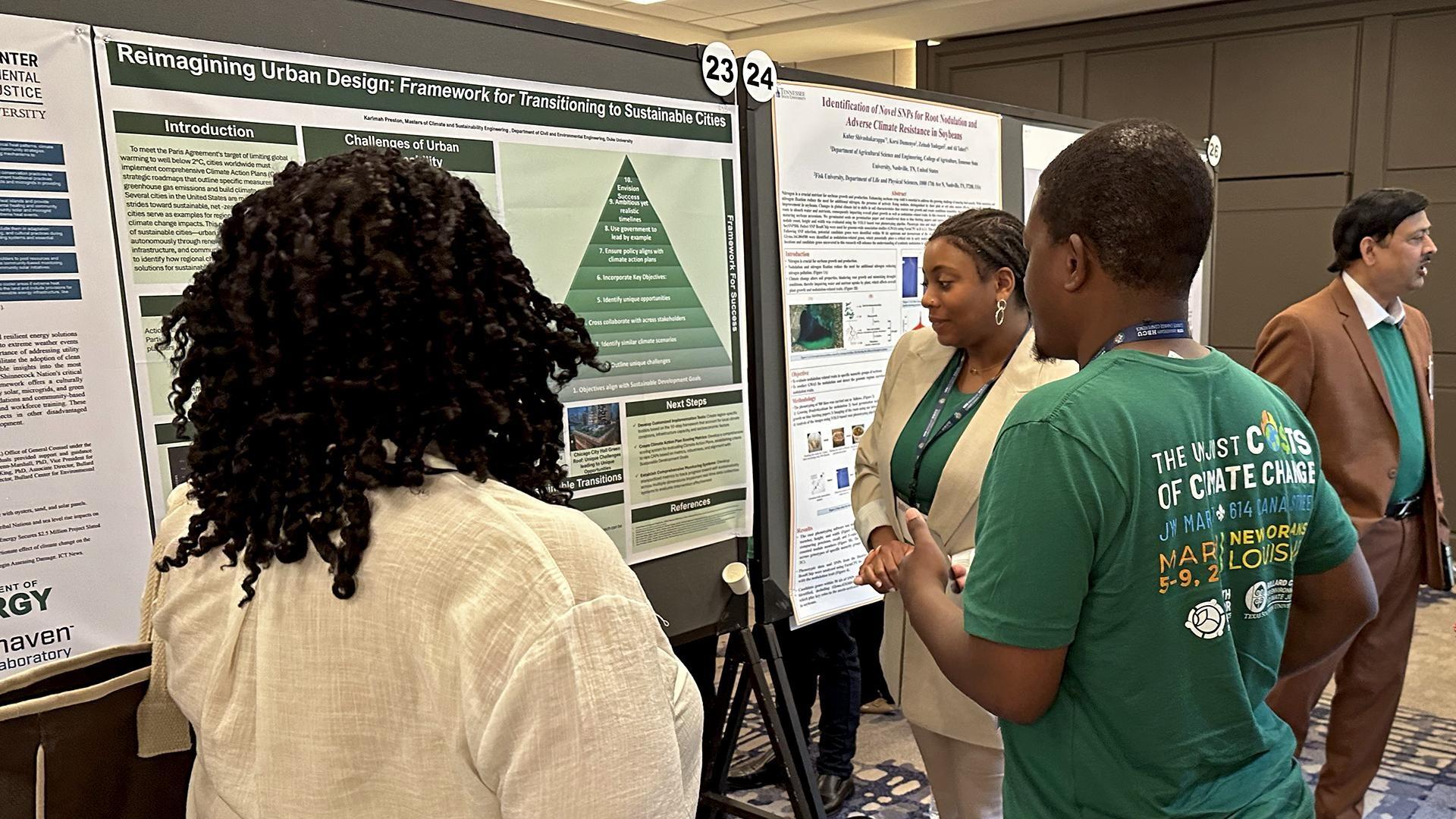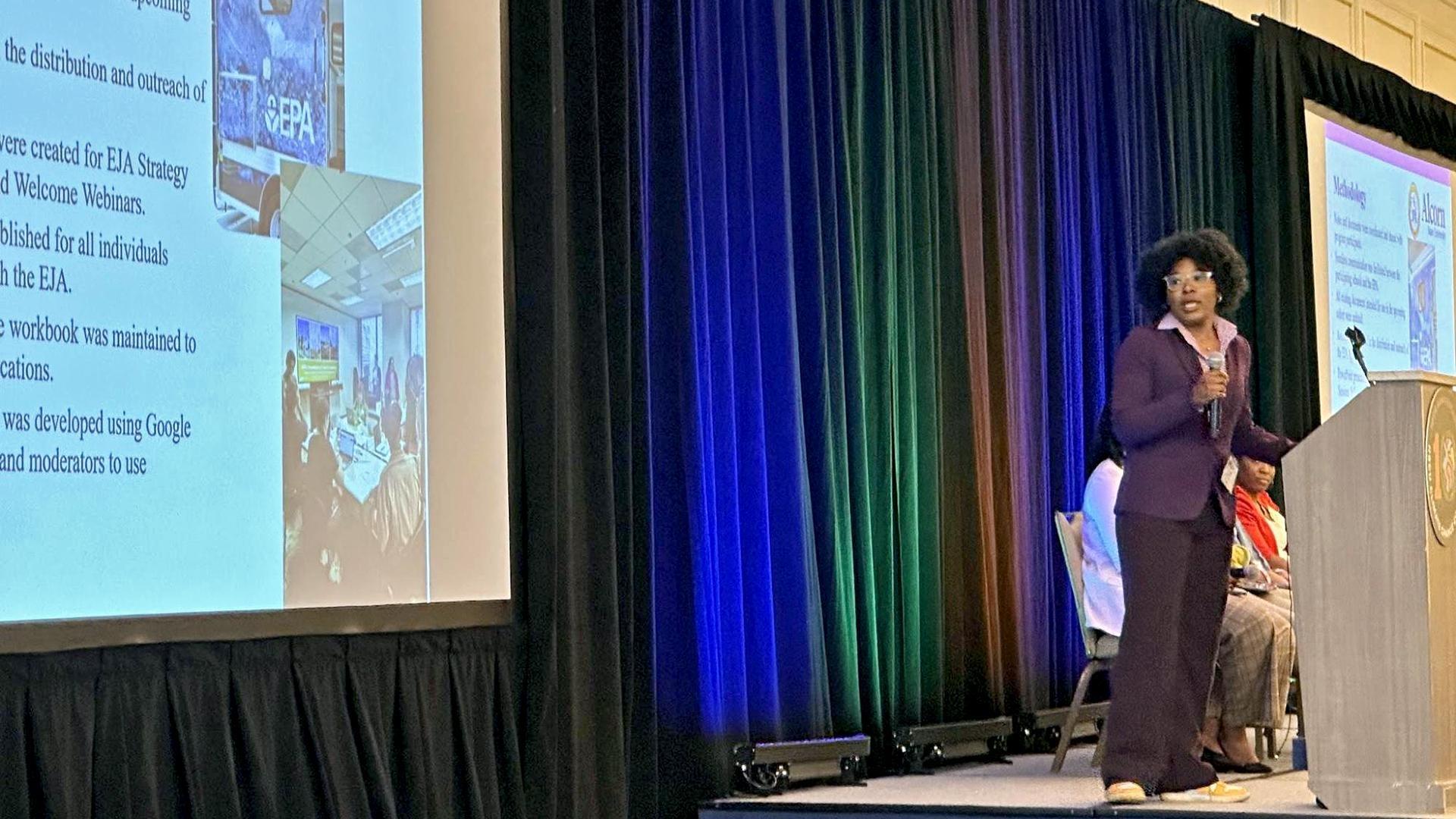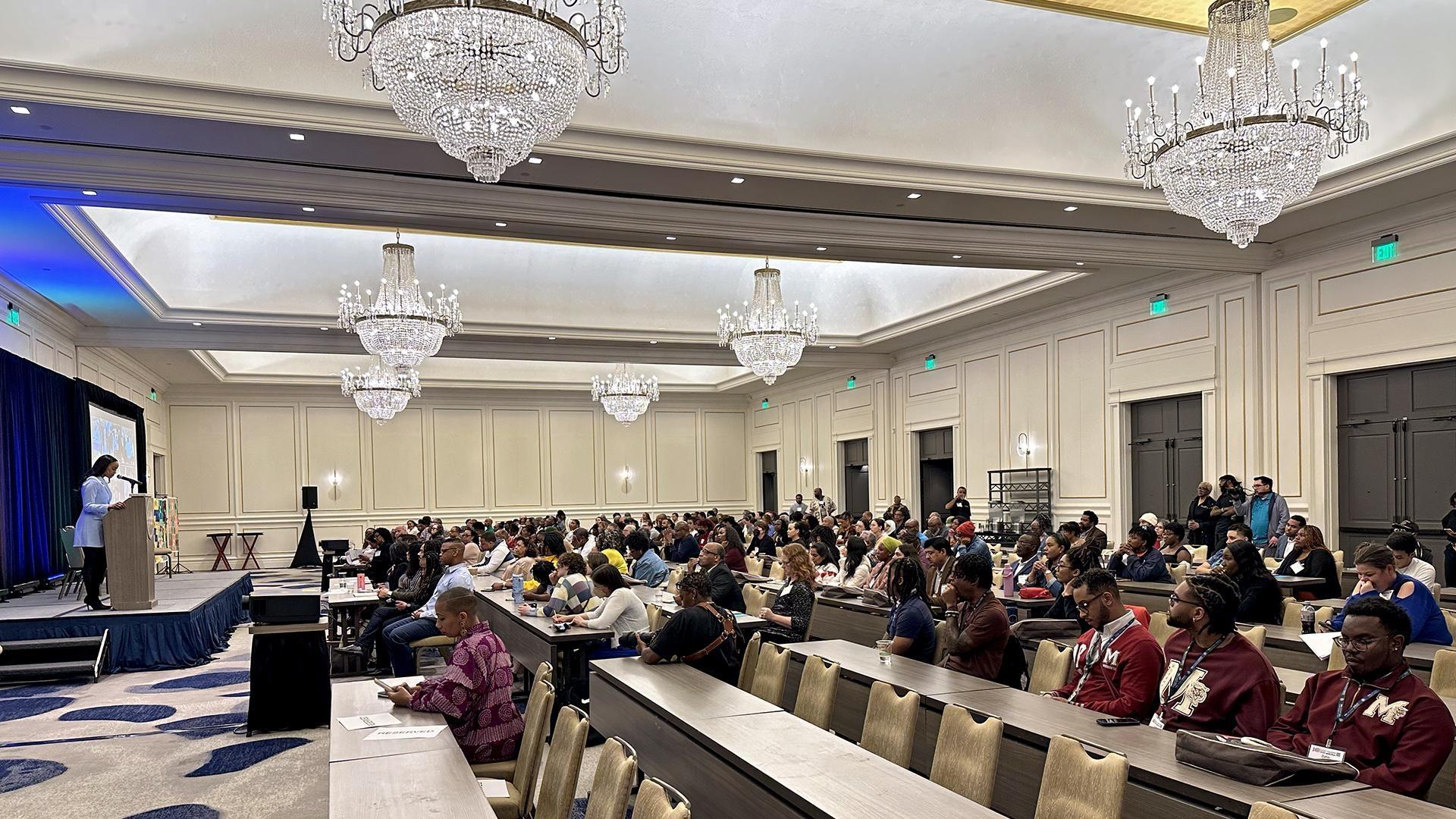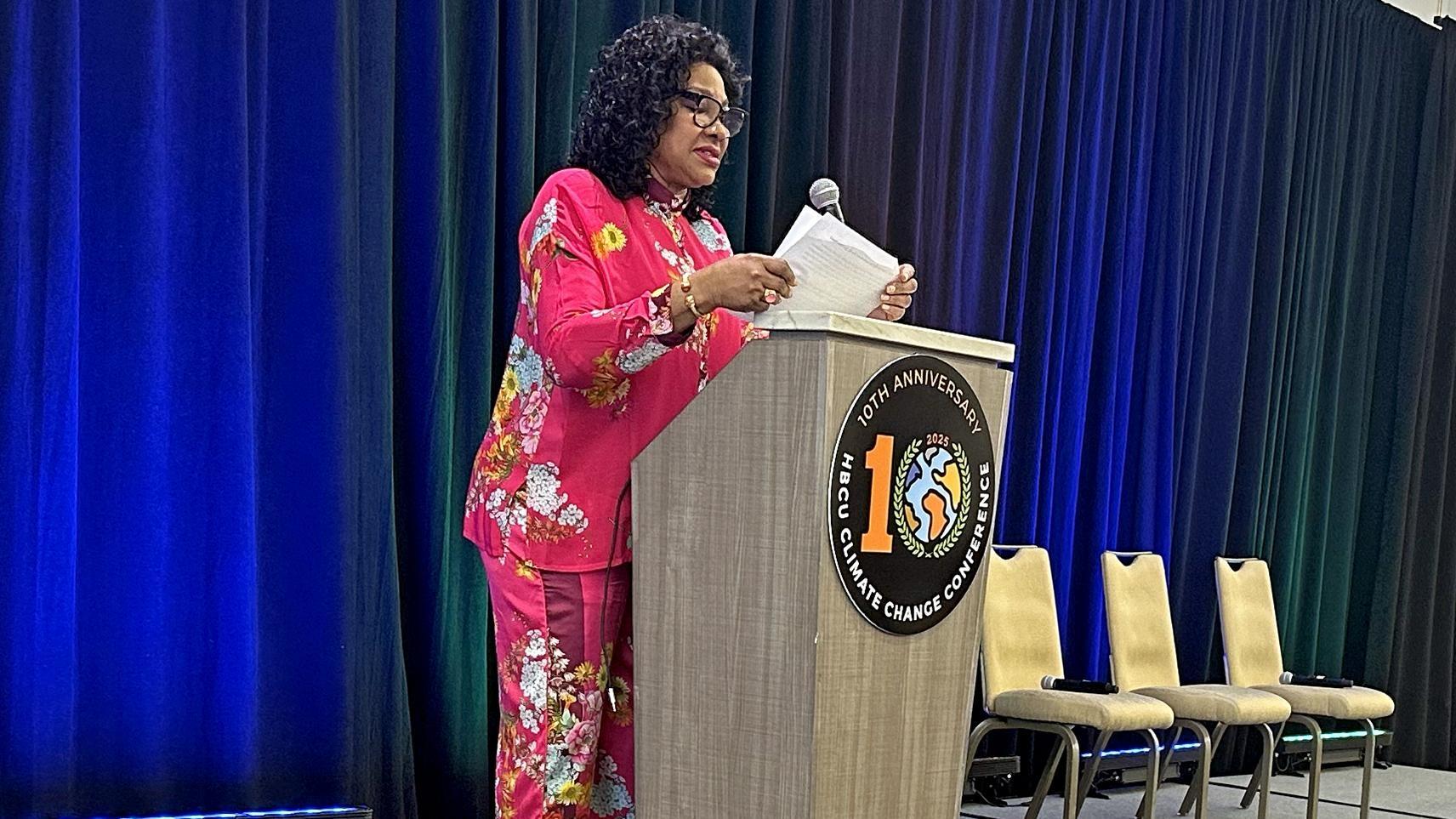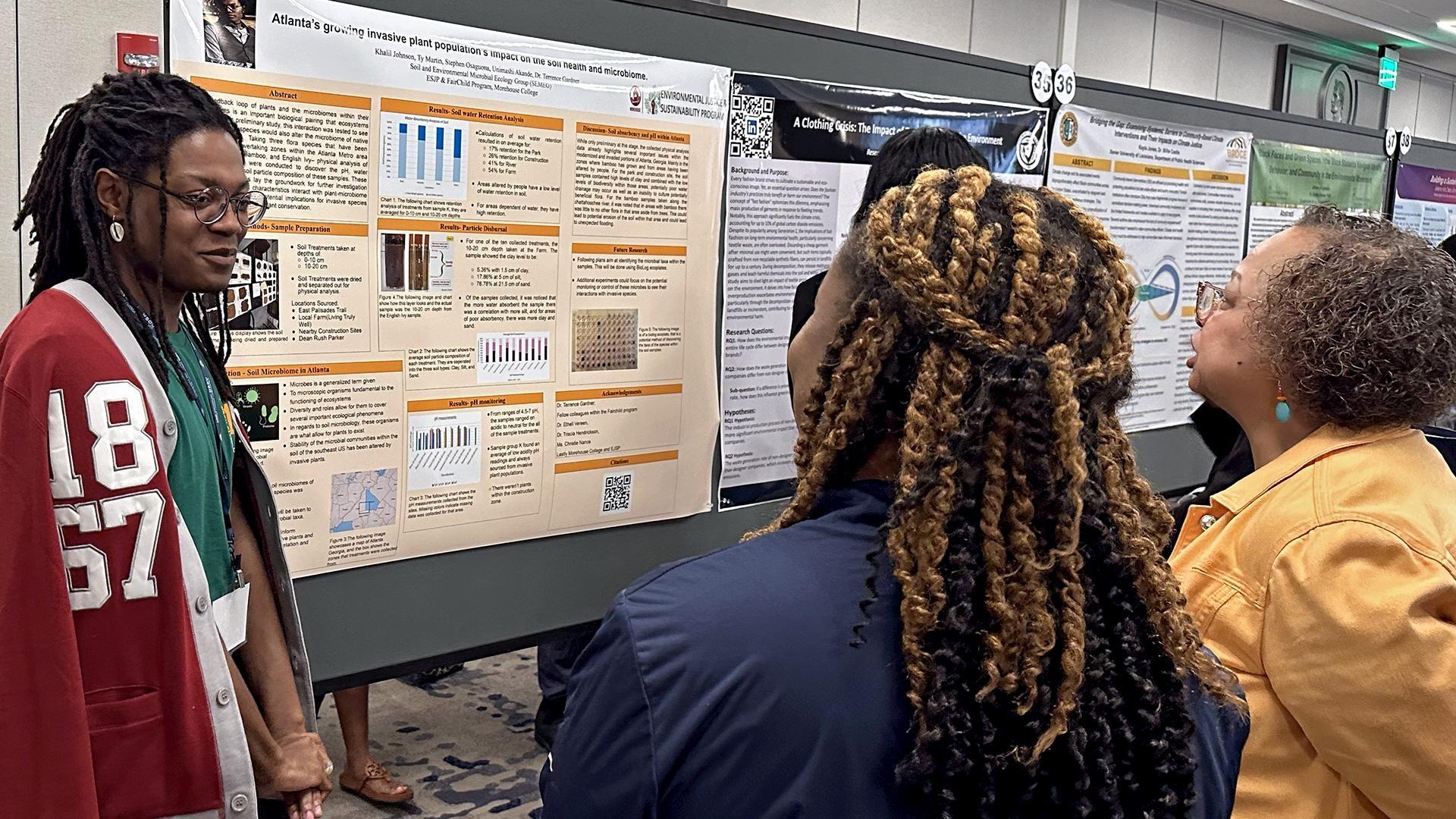This year, the conference took place amid a shifting federal landscape. Under the Biden administration, billions were dedicated to environmental justice, most notably through the Inflation Reduction Act. In an executive order soon after taking office in January, President Donald Trump vowed to strip much of it.
Recently, Democratic members of the U.S. Senate Committee on Environment and Public Works released a document listing 400 environmental grants targeted for termination. Among those included an $11 million grant that was given to the Deep South Center for Environmental Justice as a community investment recovery center.
Wright said the conference is playing the same role it always has, regardless of funding.
“That is to encourage students, to mentor them, to make sure they are aware of the problems that exist and to give them hope to continue,” she said. “This up and down support from the federal government has always been there.”
A lot of young people are depressed about what is happening in the U.S., Wright said, but the conference is showing them that they can find another pathway to achieve environmental justice.
One way to give younger students hope is by showing them the work that’s been done before them by elders and community leaders — like Major Joe Womack, who heads C.H.E.S.S., a nonprofit in Africatown, Alabama. During a panel, Womack and other leaders shared their successful strategies for collaborating with others to be more climate resilient. He also spoke on the importance of people getting involved in their communities.
“Africatown born and bred and damn proud of it,” he said. “I always say that because... I find a lot of people come from underserved communities and EJ communities, and they're not proud of where they came from.”



